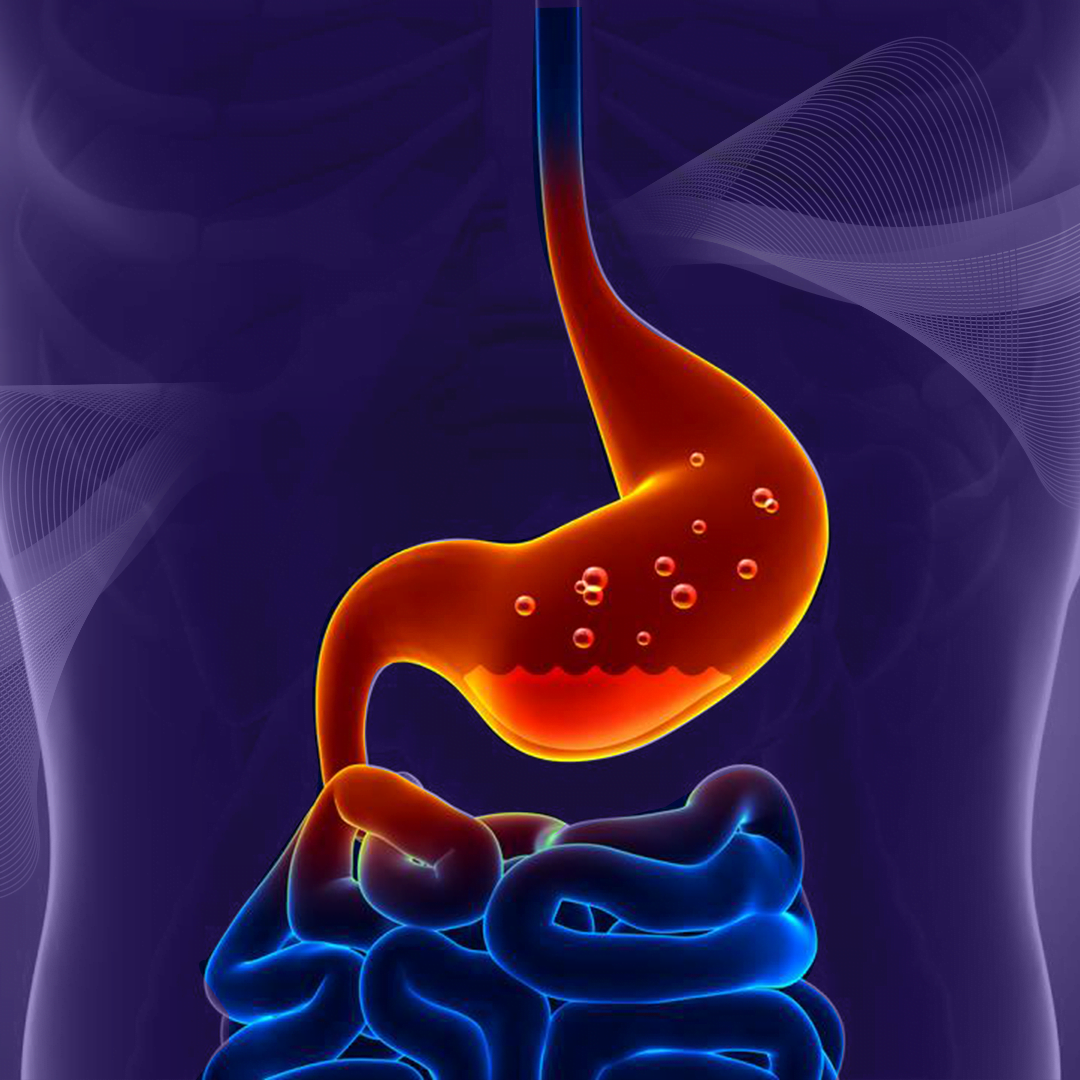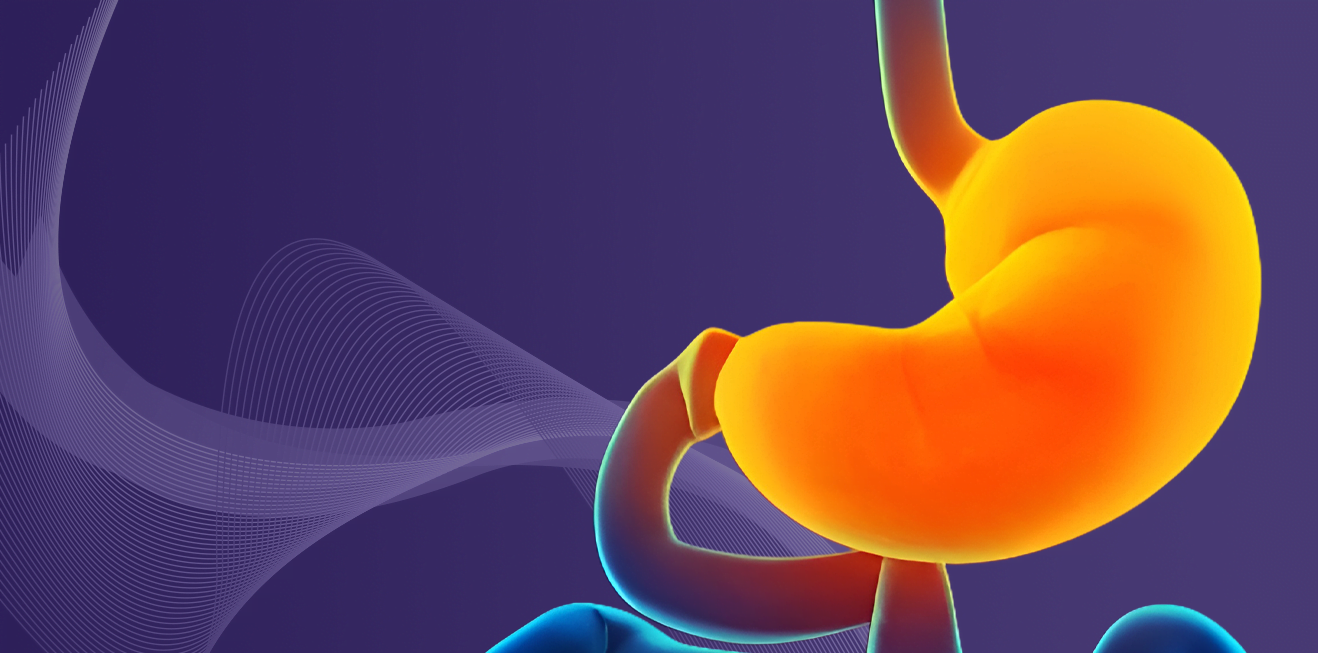Peptic Ulcers
Peptic Ulcers

Peptic Ulcers (Stomach and Duodenum)
Ulcers that affect the lining of the stomach and the upper part of the small intestine. The main symptom is "stomach pain."
Causes of peptic ulcers:
- Infection with Helicobacter pylori (H. pylori)
- Long-term use of nonsteroidal anti-inflammatory drugs (NSAIDs)
When should I suspect I have a peptic ulcer?
Symptoms:
- Burning sensation in the stomach
- Feeling full and belching
- Inability to tolerate fatty foods
- Nausea

Severe symptoms:
- Difficulty breathing
- Nausea and vomiting
- Unexplained weight loss
- Changes in appetite
When should I decide to visit a specialist?
- If the symptoms are severe as mentioned above.
- Antacids relieve the pain but it returns.
When am I more likely to develop a peptic ulcer?
- Smokers
- Alcohol consumers
- People under stress
- Eating spicy foods
What complications can occur without proper diagnosis and treatment?
- Internal bleeding and anemia
- Perforation in the stomach
- Obstruction in food passage due to swelling from the ulcer
- Stomach cancer
Prevention:
- Protect yourself from infection by ensuring food and drink cleanliness.
- Use pain relievers cautiously.
Diagnosis of peptic ulcers:
1- Lab tests for Helicobacter pylori (H. pylori)
2- Role of endoscopy in diagnosing peptic ulcers:
The doctor uses an endoscope to examine the upper digestive tract for ulcers. If an ulcer is found, a biopsy may be taken to check for H. pylori in the stomach lining.
Recommended if you are
- older
- have bleeding,
- have lost significant weight without reason,
- difficulty eating and swallowing.
3- Barium X-ray
Treatment of peptic ulcers
Lifestyle changes
- Try to change pain relievers and use them cautiously.
- Manage stress.
- Quit smoking.
- Limit alcohol consumption.
Medications
- Antibiotics to kill H. pylori
- Medications to reduce acid production and promote healing (proton pump inhibitors)
- Medications to decrease acid production (H2 blockers)
- Medications to protect the lining of the stomach and small intestine



